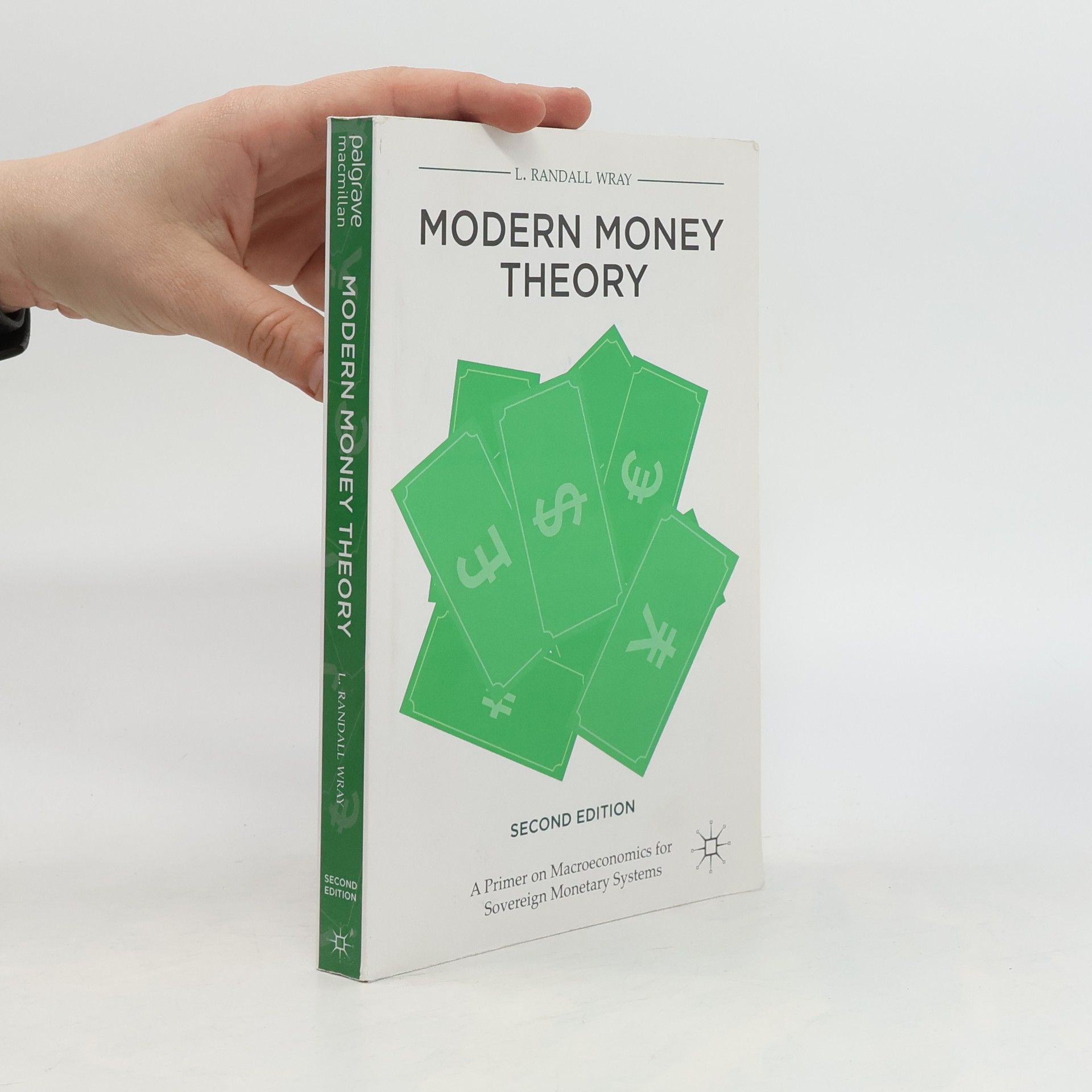Este libro desentraña el misterio del dinero, explicando su funcionamiento y el poder que tiene sin jergas complejas. A través de un viaje esclarecedor, aprenderás sobre el papel de los bancos y el gobierno, y descubrirás cómo hacer que el dinero trabaje a tu favor.
L. Randall Wray Book order (chronological)






Money is mysterious. You can hardly touch it, and yet it rules the world. We love it, we hate it, but few people can tell you what the heck it really is. Wouldn’t it be good to get out of the fog? This book can bring you clarity. It can help you see money for what it is, understand the way it works, and how to leverage its power. The authors take you on an illuminating journey from your piggy bank to the Federal Reserve, without any pesky jargon or complex math. Once you see money clearly, life will never be the same. You’ll know what really goes on in banks, and what the cash in your wallet represents. You’ll know how government really spends, and why it can’t run out of money. You’ll know what money can actually do— and how we can make it work for us.
Money is mysterious. You can hardly touch it, and yet it rules the world. We love it, we hate it, but few people can tell you what the heck it really is. Wouldn’t it be good to get out of the fog? This book can bring you clarity. It can help you see money for what it is, understand the way it works, and how to leverage its power. The authors take you on an illuminating journey from your piggy bank to the Federal Reserve, without any pesky jargon or complex math. Once you see money clearly, life will never be the same. You’ll know what really goes on in banks, and what the cash in your wallet represents. You’ll know how government really spends, and why it can’t run out of money. You’ll know what money can actually do— and how we can make it work for us.
Geld ist rätselhaft. Wir lieben es, wir hassen es, aber wenige können Ihnen sagen, was zum Teufel es wirklich ist. Wäre es nicht gut, wir hätten Klarheit? Dieses Buch hilft Ihnen, zu verstehen, wie Geld funktioniert und wie Sie seine Macht nutzen können. Randall Wray und Heske van Doornen nehmen Sie mit auf eine erhellende Reise von Ihrem Sparschwein bis zur Zentralbank, und das ganz ohne lästigen Jargon oder komplizierte Formeln. Haben Sie einmal verstanden, was Geld wirklich ist, wird Ihr Leben nie mehr sein, wie es einmal war. Sie wissen genau, was Banken so treiben und was das Bargeld in Ihrem Geldbeutel eigentlich darstellt. Sie wissen, wie die Regierung tatsächlich Geld ausgibt und warum sie niemals zahlungsunfähig werden kann. Verstehen Sie, was Geld wahrhaftig leisten kann und wie wir es für uns arbeiten lassen können.
Modern Money Theory
Ökonomische Revolution oder Geldflutung? Eine Einführung
Is money precious and scarce, necessitating iron fiscal discipline? Must the government always balance the books or risk ruin? Or is money, in fact, a flexible tool that can be used to mobilize our collective resources to serve those who need them? In this book, leading Modern Money Theory (MMT) advocate Randy Wray explains that the only real constraints on public policy are physical resources, technological capacity and political will: but never money. He shows how modern sovereign governments spend by keystroking money to bank accounts. While taxes serve other important purposes, they do not – contrary to popular belief – fund spending. If we recognize this, and totally reframe how we think about money and debt, we can marshal our national wealth to make us all richer, eliminate unemployment and “look after our own.” We can make money work for us – the US. This book's account shows how MMT can become a new American political and economic orthodoxy, replacing the dominant conservative framework forever. It is essential reading for all progressives.
Macroeconomics
- 604 pages
- 22 hours of reading
A critical examination of macroeconomics is presented through a comparative analysis of heterodox and orthodox theories. This textbook uniquely develops a heterodox model grounded in Modern Monetary Theory, drawing from notable economists like Keynes and Marx. The authors provide fiscal and monetary policy recommendations, arguing that the poor economic performance of wealthy capitalist nations could have been prevented. Their work offers a compelling philosophical and practical case for adopting the heterodox MMT perspective.
Modern Money Theory
A Primer on Macroeconomics for Sovereign Monetary Systems
- 306 pages
- 11 hours of reading
The second edition delves into the mechanics of money in today's economy, offering a comprehensive overview of Modern Money Theory. It emphasizes macro accounting, currency regimes, and exchange rates, providing insights relevant to both the USA and developing nations. This exploration aims to clarify the principles that govern monetary systems and their implications for economic policy and stability.